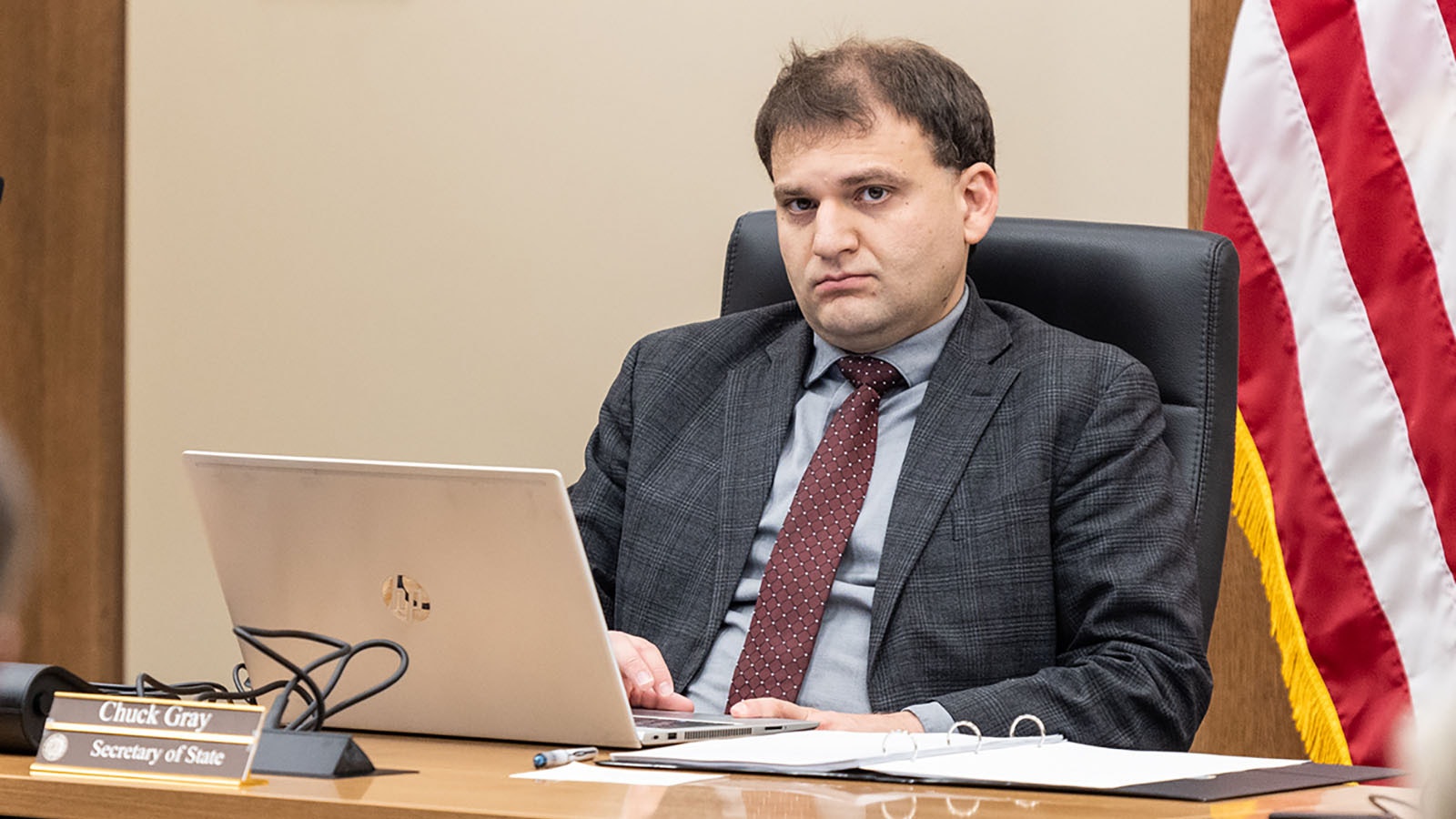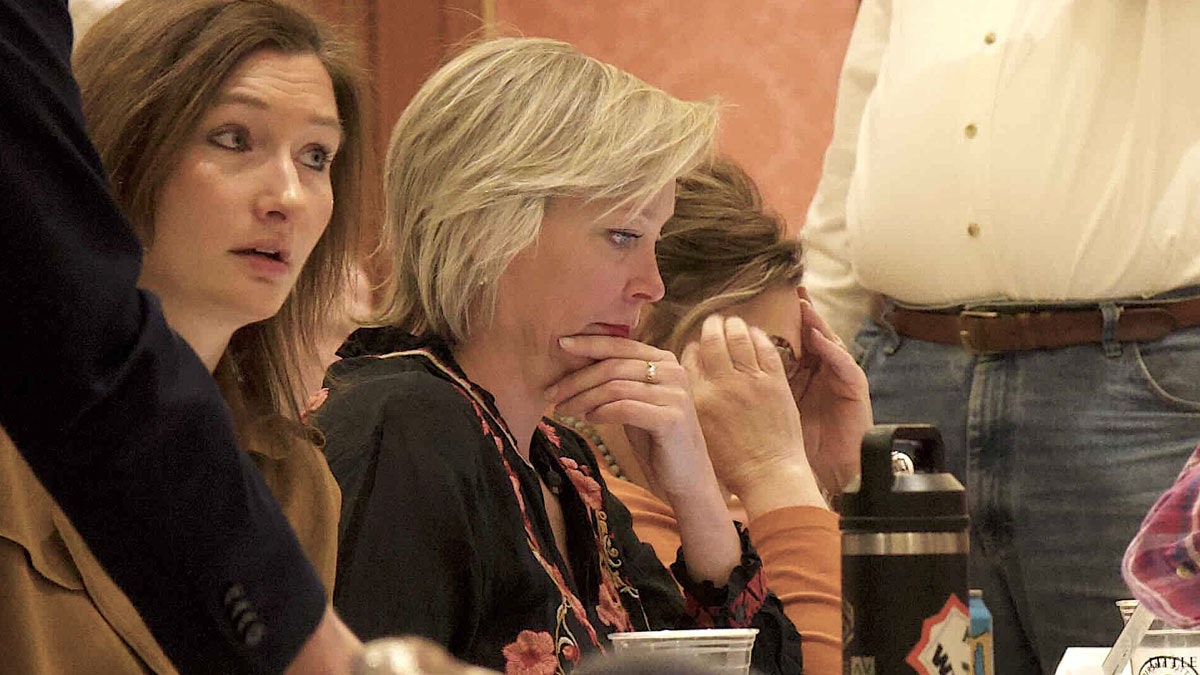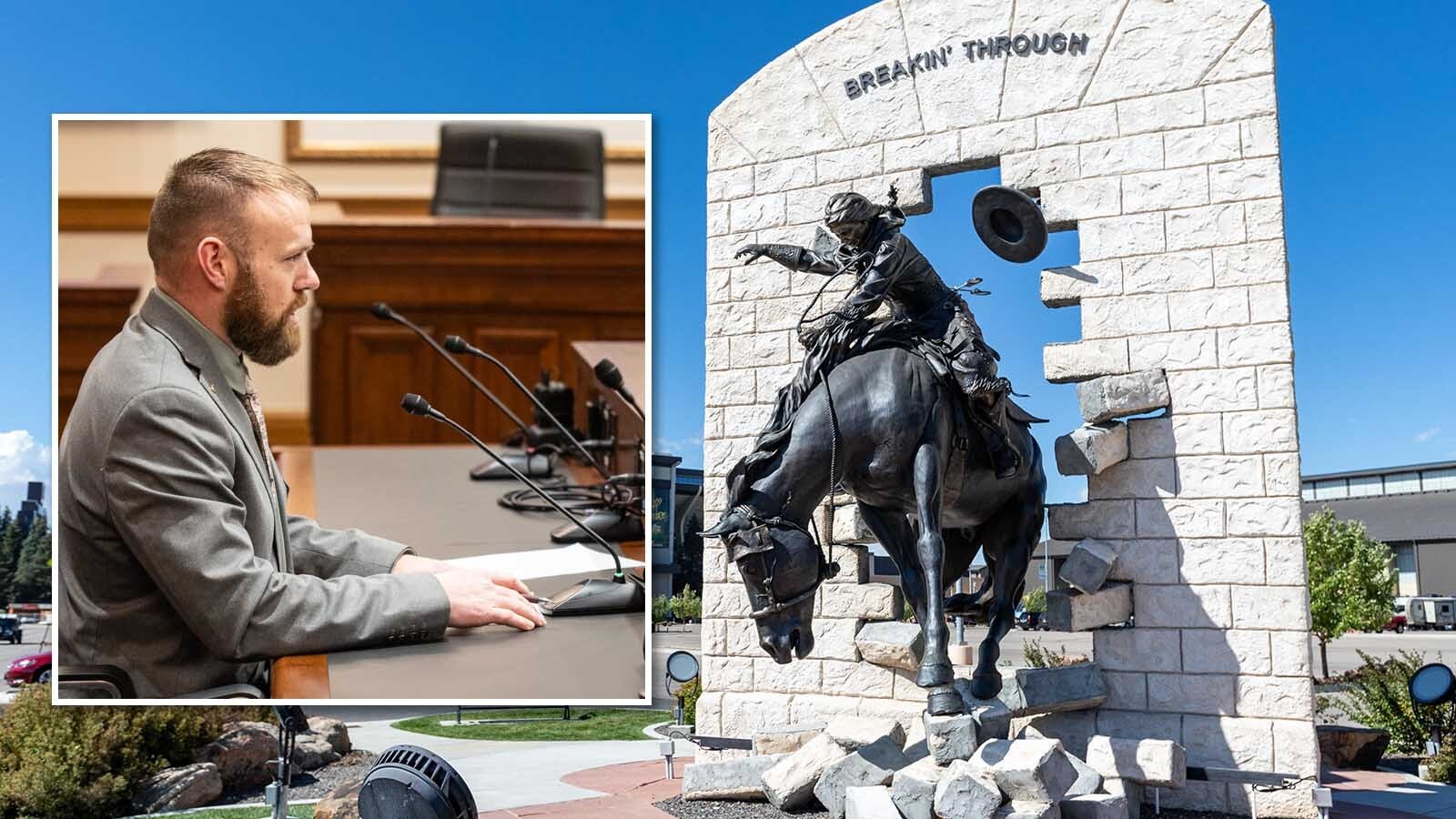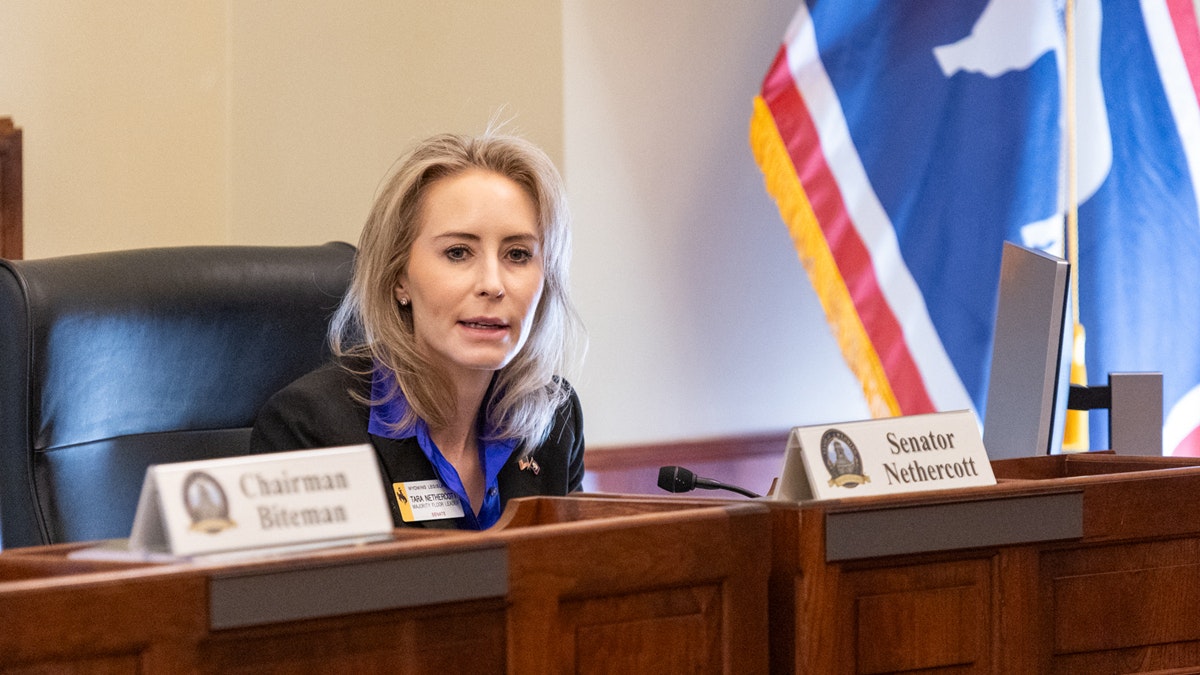It’s not uncommon for lobbyists to solicit state lawmakers in Wyoming with model legislation and key points they want inserted into law. It’s less common for lawmakers to then adopt those suggestions almost carte blanche as their own legislation.
Emails obtained through a public records request provided to Cowboy State Daily earlier this year by watchdog group Documented show that Florida-based think tank Foundation for Government Accountability (FGA) lobbied Secretary of State Chuck Gray on various elections and ESG (environmental, social and governance) topics in early 2023.
Gray did not deny utilizing the model legislation and defended his actions to Cowboy State Daily.
“I believe America is at a crossroads, and it is up to conservative leaders at the state, local and federal levels to work together to advance sound policy to protect America from the radical leftist policies of the Biden administration,” he said. “I will continue to stand up to protect the people of Wyoming.”
FGA’s lobbying paid off in the form of Gray’s support for nearly identically-tailored election security bills brought by state legislators in 2023 and new ESG rules he pushed for through the State Loan and Investment Board that were passed later that year and followed the same baseline concepts as FGA’s model legislation. Wyoming’s ESG rules are similar to the ones passed in Missouri, a state that was also solicited by FGA.
Gray also pursued a separate administrative rule in 2023 that would have required investment brokers, broker dealers and securities agents doing business in Wyoming to disclose to their clients if they are using ESG principles in the course of their business.
Gov. Mark Gordon vetoed most of those rules earlier this year, saying they ran outside the scope of regulatory authority guaranteed under Wyoming law and likely “afoul” of federal securities law and principles of preemption.
Who’s FGA?
FGA, a conservative nonprofit, has played a significant role in drafting model legislation and regulations around the country, according to Documented. It has also provided expert testimony at hearings across the country against ESG policies with many of those FGA-supported measures passing into law.
Gray’s views also align with FGA on election-related topics, as the group firmly opposes ballot drop boxes, an effort he has championed since his 2022 campaign.
Although there has been next to no documented fraud in Wyoming’s elections, Gray and others have argued it’s important for Wyoming “to get ahead of a problem” with many of the “election integrity” bills he’s supported. It’s the same reason he gave when campaigning around the state in 2022 for hosting free screenings of “2000 Mules,” a movie which claimed rampant fraud in key battleground states of the 2020 presidential election. Not only has this movie been since-discredited, but there was also no scenes or evidence presented in it from Wyoming.
Voter access groups have accused organizations like FGA of trying to suppress participation at the polls, a conclusion state Sen. Cale Case, R-Lander, said he agrees with. Case worries that legal voters will be hamstrung by superfluous hurdles in their attempt to vote.
“They’re lying about fraudulent elections to achieve these ends,” he said. It’s an oligarchy sense of control.”
Rep. Dan Zwonitzer, R-Cheyenne, said he finds it ironic that Gray, who’s responsible for overseeing the state’s elections, is pushing for election integrity reforms while issuing what Zwonitzer sees as “mistruths” about the state’s elections.
He was also concerned about Gray’s appearance at the Republican National Convention on Monday, where he gleefully announced Wyoming’s commitment to former President Donald Trump among its 29 delegates. If there is an issue with Wyoming’s ballots in the presidential race, Zwonitzer said it will be difficult to trust Gray’s impartiality on the issue.
“The optics of saying you’re running a fair and unbiased election while wearing a cowboy hat that says ‘Wyoming Is Trump Country’ is not an optic we’ve seen from previous secretaries of state over the past 40 years,” he said.
Need More Opinions
Zwonitzer said he’s been frequently solicited with draft legislation from out-of-state groups like FGA before, but approaches these bills differently, seeking feedback from many other local groups before pushing them forward, a process he refers to as “Wyoming home cooking.” He said this helps align bills with the state’s historical tendency to have more simplified and less restrictive laws than other states.
“You go find your internal and external subject matter experts,” he said. “It seems like the last two years, there’s been a full court pressure to say we don’t need to work with any subject matter experts. If you disagree, you’re called woke, radical, an insider, liberal. It gets a little old.”
Gray said he routinely seeks feedback from outside groups and individuals “to explore common-sense, conservative solutions” to bring election integrity measures in Wyoming. He didn’t specifically mention seeking out any Wyoming feedback on the FGA bills.
“In fact, this is why I was elected, and the people of Wyoming expect me to work with others to advance important issues for the people of Wyoming,” he told Cowboy State Daily. “It seems that the radical leftists media outlets only seem to notice because policies that I have pursued advance a conservative vision.”
Election Bills
FGA also influenced Gray and state lawmakers in 2023 over a variety of election-related bills. Lawmakers sent many emails back and forth with FGA, soliciting and receiving legal advice from the group’s attorney, according to the emails provided to Cowboy State Daily.
One of its model bills aimed to prohibit third-party groups from providing any money for elections, a trend popularly known as “Zuckerbucks” after Facebook CEO Mark Zuckerburg and his wife collectively donated at least $400 million to two nonprofit organizations to help election offices in various swing states run elections during the COVID-19 pandemic.
This proposed bill appeared to pique Gray’s interest as he, a few days later, solicited input from FGA’s chief of government affairs to draft an almost identical bill for Wyoming.
Nicholas Adolphsen, the FGA chief, responded in an email obtained by Documented that besides a few small recommendations, the bill “would be a great win for Wyoming.” Another staffer for FGA added that it was a “thumbs-up full ban” on Zuckerbucks.
Gray forwarded the draft legislation and FGA’s comment on to freshman legislator Rep. Daniel Singh, R-Cheyenne, who ended up being the lead sponsor of the bill. The bill was dead on arrival in the House in 2023 but was brought back as a committee bill this year, once again failing to receive much traction.
Zwonitzer believes failing to fully vet bills like these and align them to current Wyoming law before being introduced wastes time in the legislative process.
“He (Gray) handed off the bill to them without them fully understanding the process to make the bill more Wyoming-centric,” he said.
Zwonitzer also said the emails reveal where he suspected Gray was getting some of his inspiration for his election integrity bills all along.
“He’s not necessarily listening to the county clerks but he’s certainly listening to outside groups from Florida,” he said.
Unsolicited Absentee Ballot Ban More Successful
FGA also suggested another bill to Wyoming state lawmakers that actually ended up getting passed by the Legislature before it was vetoed.
This was an effort to ban unsolicited absentee ballots being handed out in Wyoming, which did have the indicated support of the Wyoming County Clerks Association.
It appears this FGA bill had been originally sent to Sen. Lynn Hutchings, R-Cheyenne, who then forwarded it onto Gray.
“Chuck, Here is the FGA proposed bill,” Hutchings wrote to Gray in a January 2023 email, sent about nine days after he took office, to which Gray responded, “This is great!”
The bill introduced was almost identical to the model legislation that FGA had proposed. What was sent to the governor was tailored down through legislative committee markups and discussions from the original version FGA wanted.
What became Hutchings’ bill, “Prohibition On Delivery of Unsolicited Ballot Forms,” would have blocked people from distributing unsolicited absentee ballot request forms to voters without a prior request. Like Gray’s ESG rules, the bill also ended up being vetoed by Gordon, who called the legislation “superfluous and potentially confusing” and said it might “inappropriately suppress proper absentee voting.
The veto drew commentary from both Gray and Adolphsen.
“The Governor just vetoed the absentee ballot request form bill. Very troubling,” Gray wrote in an email to Adolphsen.
Adolphsen felt the same.
“So he is saying that misleading documents that create confusion for voters and that claim to be official even though they are not official doesn’t affect elections,” he wrote in an email. “That lying and confusion doesn’t diminishes people’s confidence in the security of their elections? That’s some tough logic.” This exchange was first reported by CNN.
Gray also solicited the group’s input on a bill brought by Rep. Scott Smith, R-Lingle, that would have required voters to provide certain forms of identification information with their absentee ballots. It died on arrival in the House.
It’s not the first time Wyoming legislators have copied and pasted bills passed in other states. Casper Republican Rep. Jeanette Ward’s “What Is A Woman Act” brought this year would have required people to use the bathroom of their biological sex in public spaces in Wyoming. It was nearly identical to legislation passed in Alabama bearing the same name.





